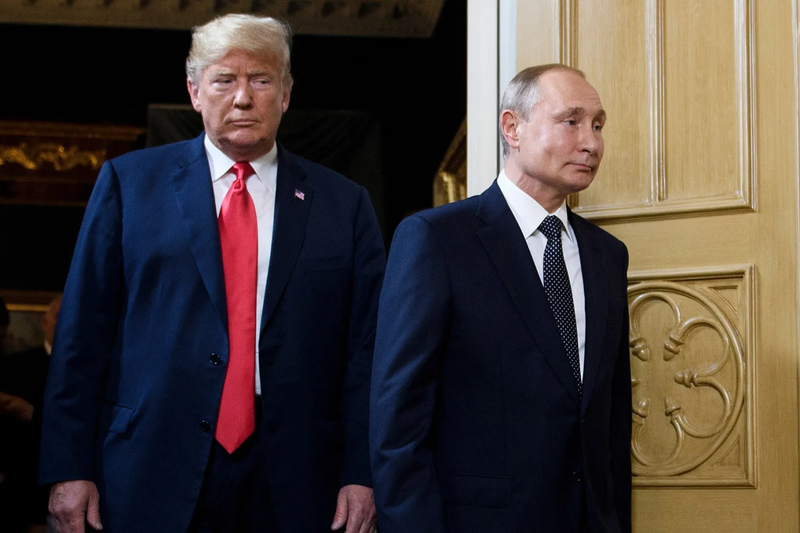
In a rare public rebuke of his longtime counterpart, U.S. President Donald Trump on Thursday called on Russian President Vladimir Putin to cease attacks on Ukraine’s capital, Kyiv, following a wave of deadly missile and drone strikes that killed at least eight and injured dozens more.
“I am not happy with the Russian strikes on KYIV. Not necessary, and very bad timing. Vladimir, STOP! 5000 soldiers a week are dying. Let's get the Peace Deal DONE!” Trump posted on Truth Social.
The strikes, described by Ukraine as the largest assault on Kyiv in 2025, involved more than 200 projectiles, including ballistic missiles. Rescue teams were seen combing through rubble overnight, and over 40 fires were reported across the city.
Trump’s Peace Push, but a Complex Road Ahead
Trump’s message signals urgency in finalizing a ceasefire as peace negotiations enter a pivotal phase. Reports suggest the Trump administration has floated a proposal that would acknowledge Russia’s territorial control in eastern Ukraine since 2014 while blocking Ukraine from NATO membership. Ukrainian President Volodymyr Zelensky has strongly rejected this, particularly the idea of conceding Crimea, stating it violates Ukraine’s constitution.
Trump told reporters Wednesday: “I think we have a deal with Russia.” He also claimed that Zelensky has been more difficult to work with than Putin, raising eyebrows both at home and abroad.
What Trump Isn’t Saying: The China Factor
While Trump is urging an end to Russian aggression in Ukraine, experts caution that a larger geopolitical threat looms: China’s growing influence and strategic alignment with Moscow.
Beijing has increasingly supported Moscow’s economic resilience through oil imports, yuan-based trade, and technology transfers that defy Western sanctions. Intelligence sources indicate that Chinese components are appearing in Russian military drones and telecommunications gear used on the Ukrainian battlefield.
“The real danger isn’t just Putin—it’s how China is enabling him and undermining American influence globally,” said former National Security Advisor Michael Bell. “While Russia fires missiles, China chips away at U.S. economic and technological dominance from every angle.”
China has also deepened its footprint in Latin America, Africa, and the Indo-Pacific through Belt and Road investments, resource deals, and digital infrastructure projects—many of which are seen as strategic encroachments on U.S. interests. Furthermore, Beijing’s aggressive moves toward Taiwan and coercion of global supply chains continue to raise alarm.
The Bigger Picture
While the White House focuses on ending the war in Ukraine, critics argue that the administration must take a broader stance against authoritarian collusion.
“Putin’s war is horrific, but make no mistake—Xi Jinping is playing the long game,” said retired General Laura Curtis. “China is using this war to reshape the global order, and the U.S. must not be lulled into a false peace while a larger storm brews in the Pacific.”
As Trump’s envoy Steve Witkoff prepares for another round of talks with Putin on Friday, observers warn that any deal must consider not just Russian aggression, but also the broader threat posed by China’s economic leverage and strategic ambitions.
In the race for peace, America must remain vigilant—not just toward missiles falling on Kyiv, but toward the silent encroachments of Beijing on U.S. power and global stability.